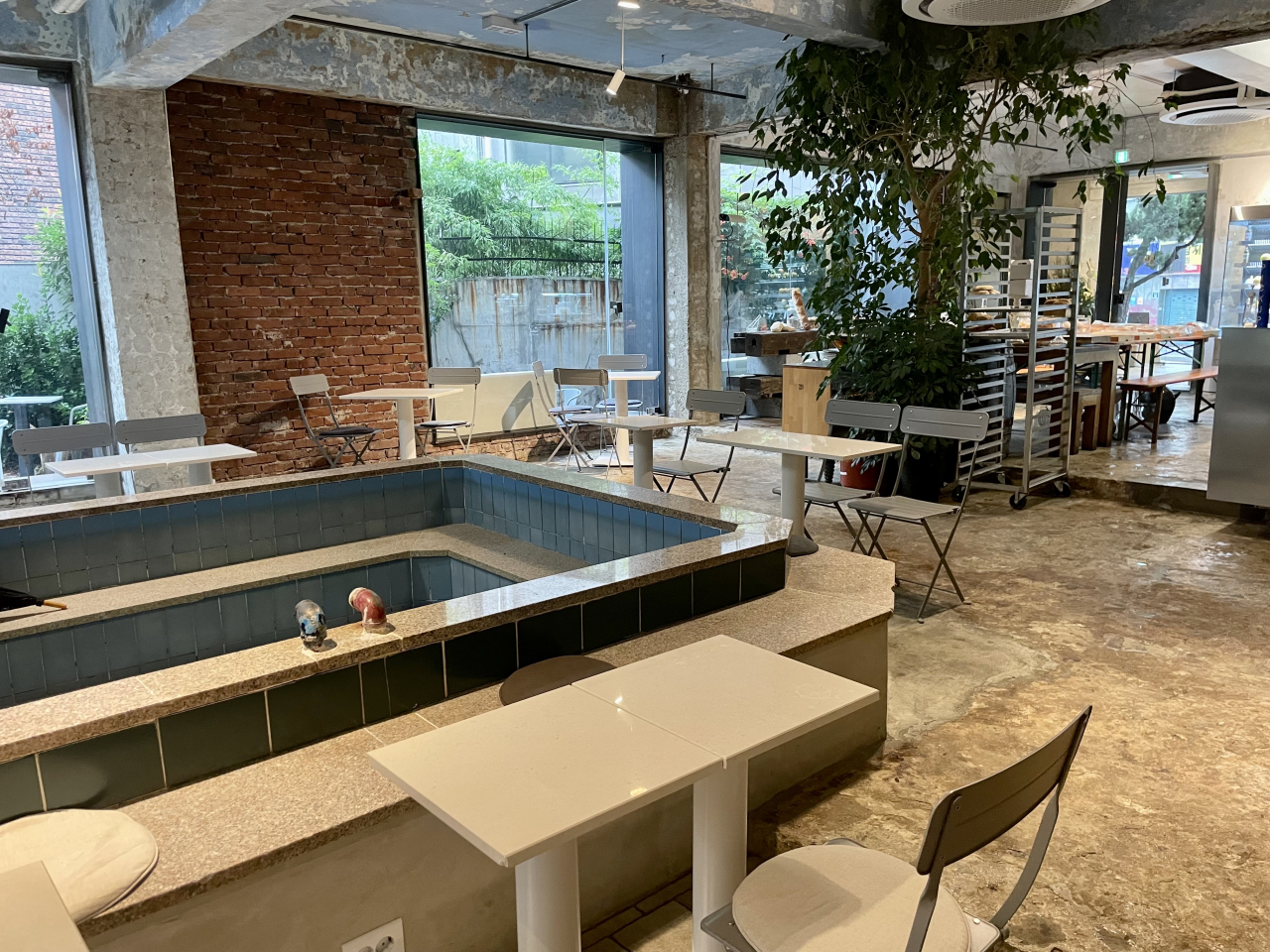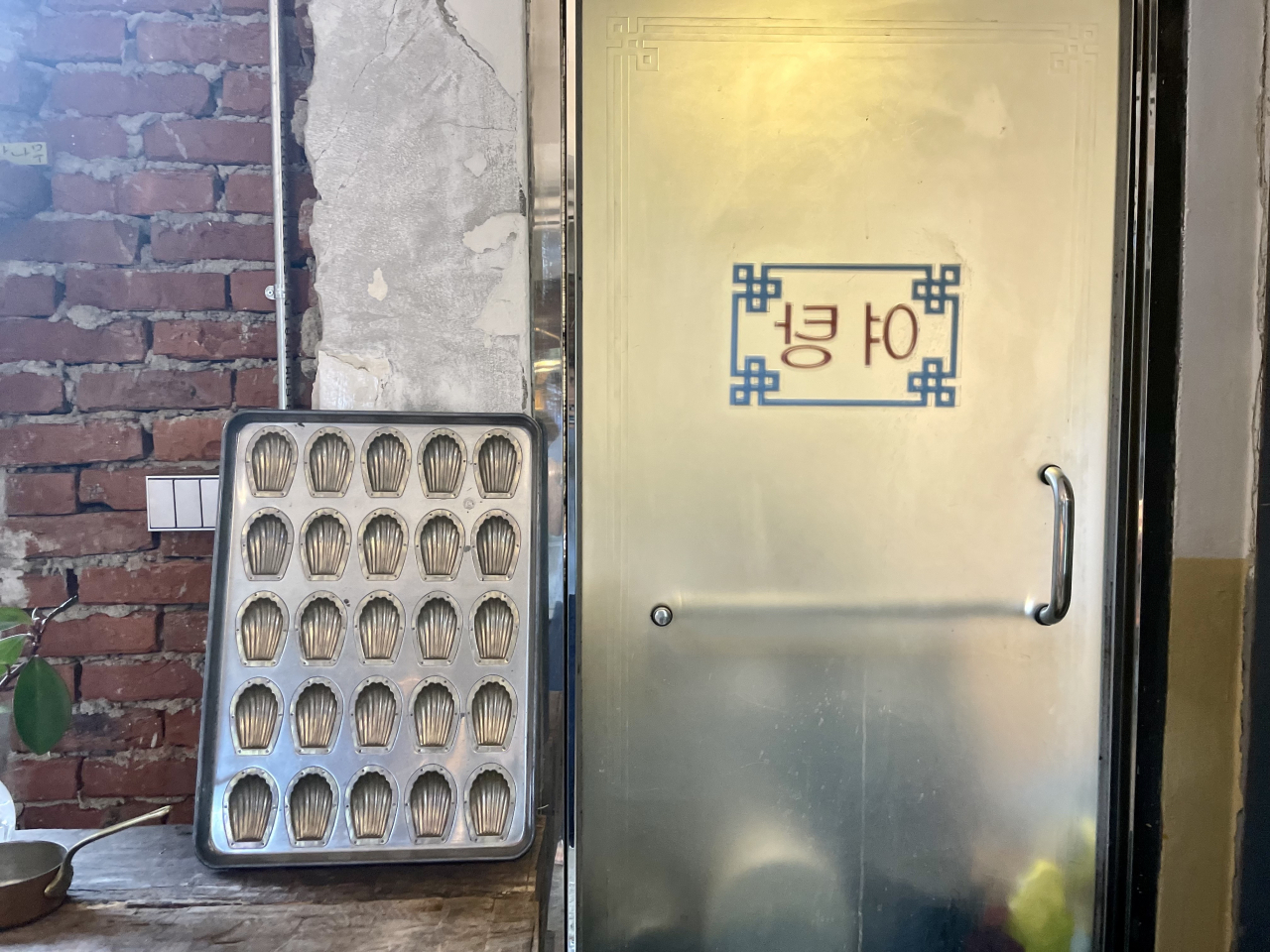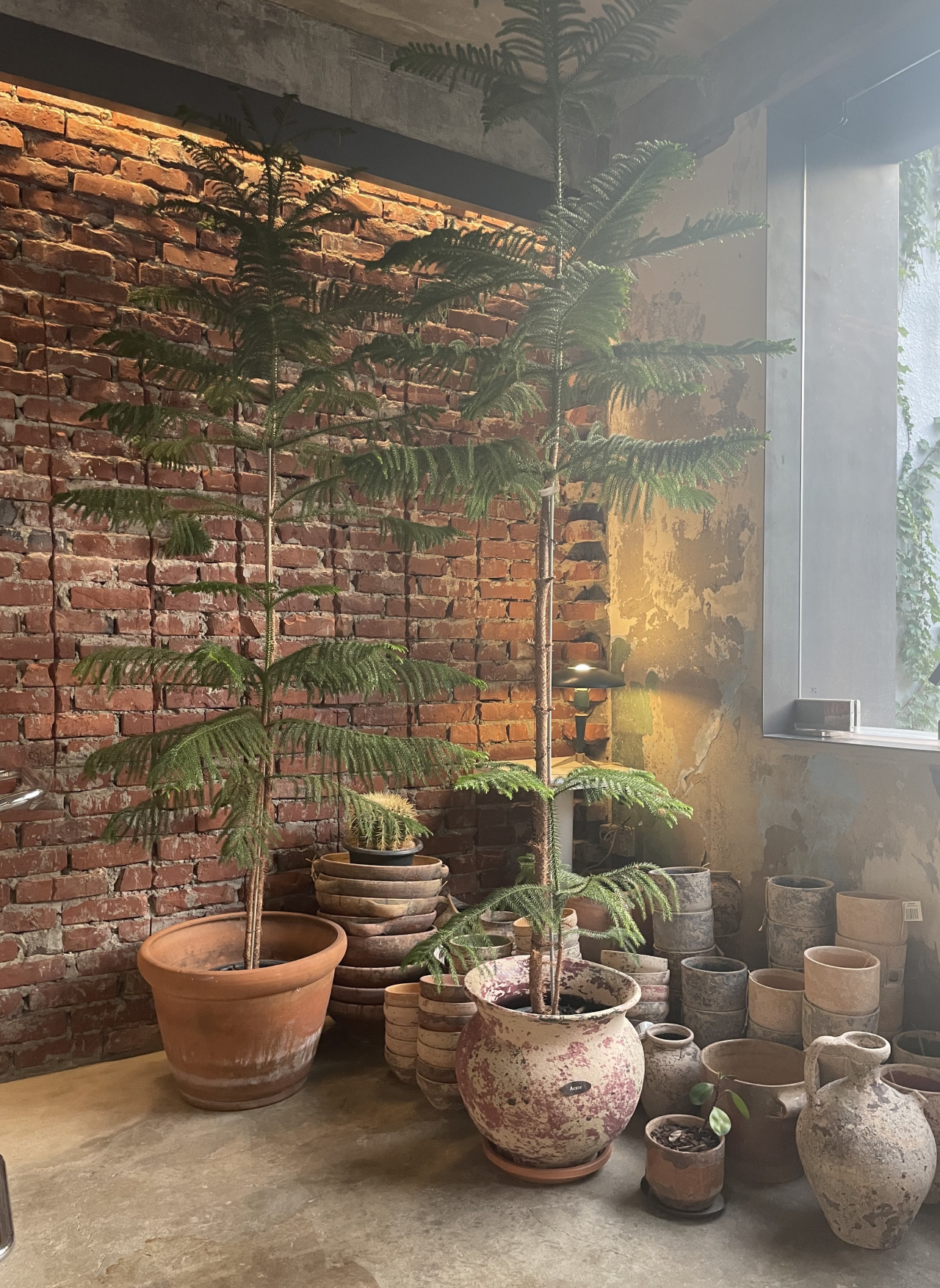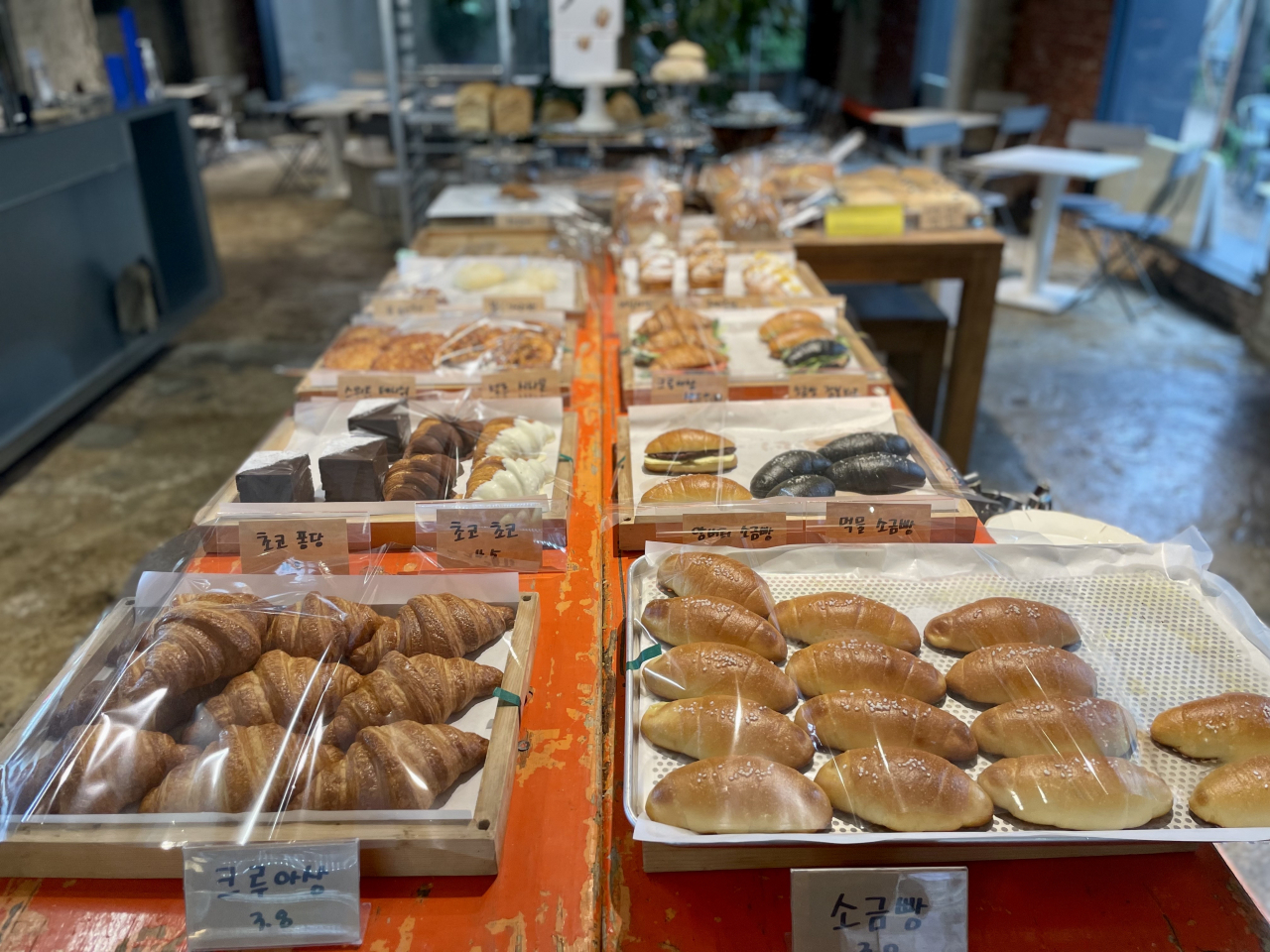 |
Cafe Bugangtang (Kim Da-sol/The Korea Herald) |
Sangdo-dong, a neighborhood of Dongjak-gu in Seoul, is a mostly quiet residential area with a mix of apartment complexes, houses and schools. It is not known as a cool or Instagrammable area, that's for sure.
Amid such an ordinary area, a three-story red brick building located just a five-minute walk from Sangdo Station on Subway Line No. 7, stands out. It’s Bugangtang, or "Bugang public bathhouse" in Korean, which transformed into a bakery cafe last year.
“The building caught my eyes as I’d been yearning to open a place in a classic, red brick building after learning about this kind of building in Europe or Japan,” Bugangtang co-CEO Bae Jae-hyun told The Korea Herald in an interview on July 4.
Originally a public bathhouse that opened in 1973 where the first floor was used for women and the second floor for men, Cafe Bugangtang has kept the original building materials as well as the structure. The bathhouse closed its doors during the pandemic when the business was hit hard.
 |
Cafe Bugangtang still has an entrance door that says "Bath (entrance) for women." (Kim Da-sol/The Korea Herald) |
Bae -- who has been operating two brunch restaurants under the name, the Flying Pan, in the Garosugil area of Sinsa-dong and near Gangnam Station since 2004 -- had wanted for a long time to create a kind of cafe-cultural complex that has a natural mood.
“Unlike modern, cool cafes with clean and white interior designs, I didn’t have any specific style in mind for Bugangtang. I actually did it the other way round. I just wanted to show the raw atmosphere of this building and was very adamant about keeping the building’s original concept,” Bae said.
Just as Bae said, inside Bugangtang, you can still find an empty bath tub in the middle of the cafe. The red bricks create a warm mood and go well with the concrete walls and ceilings. The vintage chairs and potted plants create a comfortable and even endearing atmosphere.
“I can still remember when we began demolition. Without any floor plan, I relied on my feelings and know-how, focusing on making a place that can inspire others. Progress is still under way,” he added. Bae is a co-CEO along with two other CEOs, leading a staff of seven and managing the food and drink preparations.
Compared to hot cafe-hopping areas like Seongsu-dong and Yeonnam-dong, Sangdo-dong is lesser known to coffee lovers or those looking for Instagrammable spots. Bae said Sangdo-dong’s uniqueness as a residential area but with rich historical sites is fun and meaningful to him. In Bugangtang's vicinity, there is a neighborhood called Jangseungbaegi, which was named after the traditional wooden totem poles known as village guardians, Jangseung, that were erected when the area was rural in the 18th century by King Jeongjo.
“Visitors’ ages here are very different compared to my brunch cafes in Gangnam or Sinsa. Young students to those in their 40s, 50s and even 60s visit Bugangtang, with some even talking about how surprised they are to see the place turned into a cafe,” said Bae.
To amp up the exotic but natural mood, the entrance of Bugangtang is filled with Italian clay pots and flower pots. Like a shop-in-shop, the bathhouse's original ticket booth now sells plants and pots under the name, Aeste.
 |
Cafe Bugangtang (Kim Da-sol/The Korea Herald) |
 |
Cafe Bugangtang (Kim Da-sol/The Korea Herald) |
The cafe-bakery reflects Bae's efforts and years of experience and expertise accumulated from branding almost 100 cafes and restaurants as well as lifestyle and residential spaces.
“We’ve collaborated with Hannam-dong’s Maybell Bakery for long time and now we have our own space to test and show more varieties of baked goods. We are in the beginning stage. For the past five months, we have been brainstorming bread and brunch items,” he said, adding that he wants to mix bread with lifestyle at Bugangtang.
The third floor of Bugangtang is still under preparation.
“I’m planning to use the place as a lifestyle gallery, like showing the works of rising artists. But I want to make it more fun while keeping the natural mood. I’m currently discussing it with my partners,” said Bae.
Bugangtang is open every day. The bakery on the first floor is open from 10:30 a.m. to 10 p.m. The Flying Pan which serves brunch on the second floor is open until 9 p.m.
Seoul has over 25,000 cafes with many opening and closing each year. The Korea Herald visits unique cafes in Seoul that satisfy people’s tastes for both coffee and atmosphere with the aim of experiencing coffee drinking as a culture. – Ed.







![[Today’s K-pop] Blackpink’s Jennie, Lisa invited to Coachella as solo acts](http://res.heraldm.com/phpwas/restmb_idxmake.php?idx=644&simg=/content/image/2024/11/21/20241121050099_0.jpg)